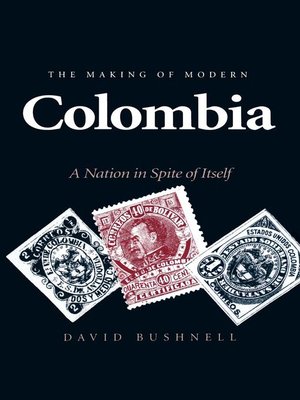
Sign up to save your library
With an OverDrive account, you can save your favorite libraries for at-a-glance information about availability. Find out more about OverDrive accounts.
Find this title in Libby, the library reading app by OverDrive.



Search for a digital library with this title
Title found at these libraries:
| Library Name | Distance |
|---|---|
| Loading... |
Colombia's status as the fourth largest nation in Latin America and third most populous—as well as its largest exporter of such disparate commodities as emeralds, books, processed cocaine, and cut flowers—makes this, the first history of Colombia written in English, a much-needed book. It tells the remarkable story of a country that has consistently defied modern Latin American stereotypes—a country where military dictators are virtually unknown, where the political left is congenitally weak, and where urbanization and industrialization have spawned no lasting populist movement.
There is more to Colombia than the drug trafficking and violence that have recently gripped the world's attention. In the face of both cocaine wars and guerrilla conflict, the country has maintained steady economic growth as well as a relatively open and democratic government based on a two-party system. It has also produced an impressive body of art and literature.
David Bushnell traces the process of state-building in Colombia from the struggle for independence, territorial consolidation, and reform in the nineteenth century to economic development and social and political democratization in the twentieth. He also sheds light on the modern history of Latin America as a whole.
There is more to Colombia than the drug trafficking and violence that have recently gripped the world's attention. In the face of both cocaine wars and guerrilla conflict, the country has maintained steady economic growth as well as a relatively open and democratic government based on a two-party system. It has also produced an impressive body of art and literature.
David Bushnell traces the process of state-building in Colombia from the struggle for independence, territorial consolidation, and reform in the nineteenth century to economic development and social and political democratization in the twentieth. He also sheds light on the modern history of Latin America as a whole.







